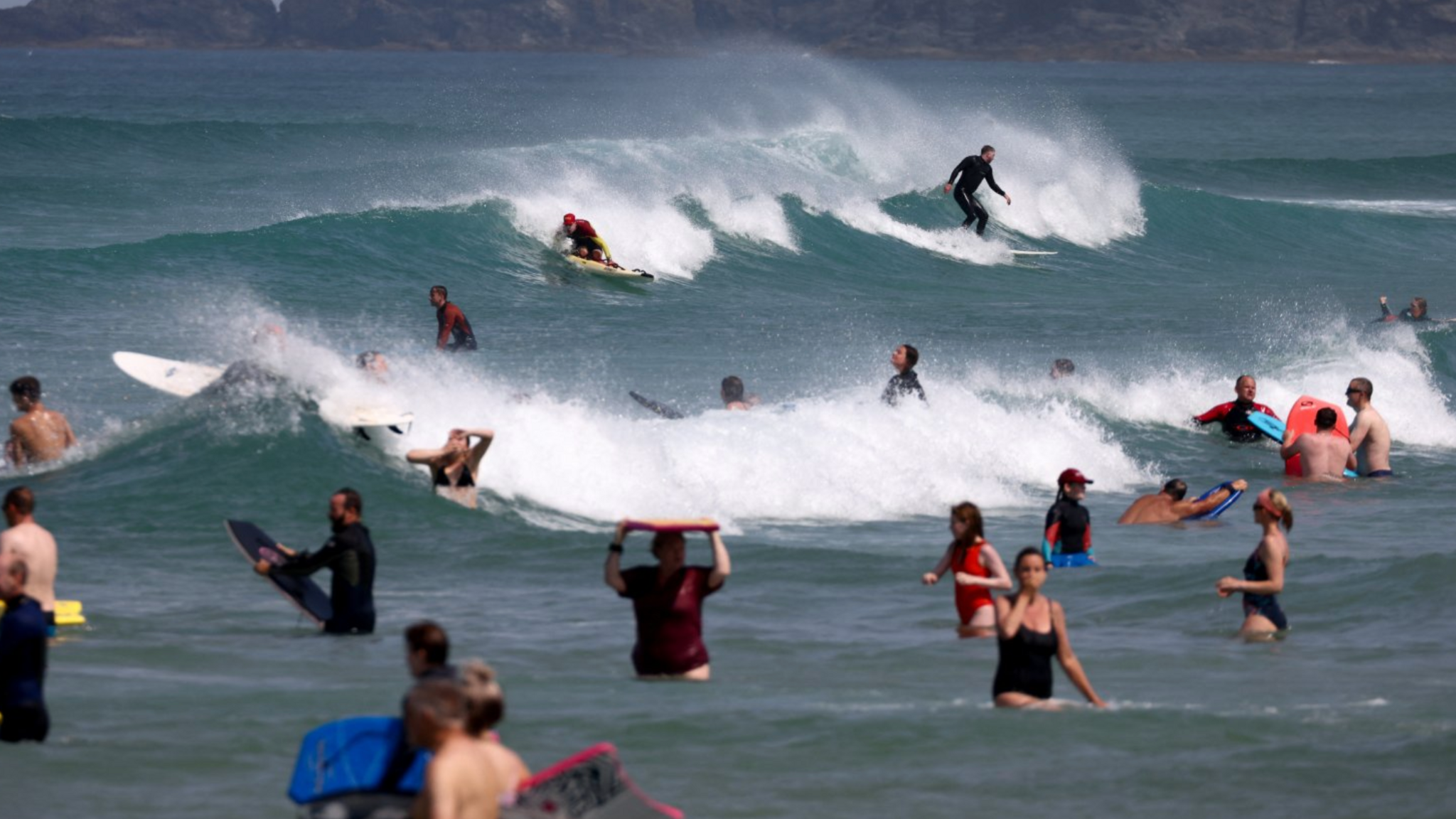Calls for real-time bathing water quality testing
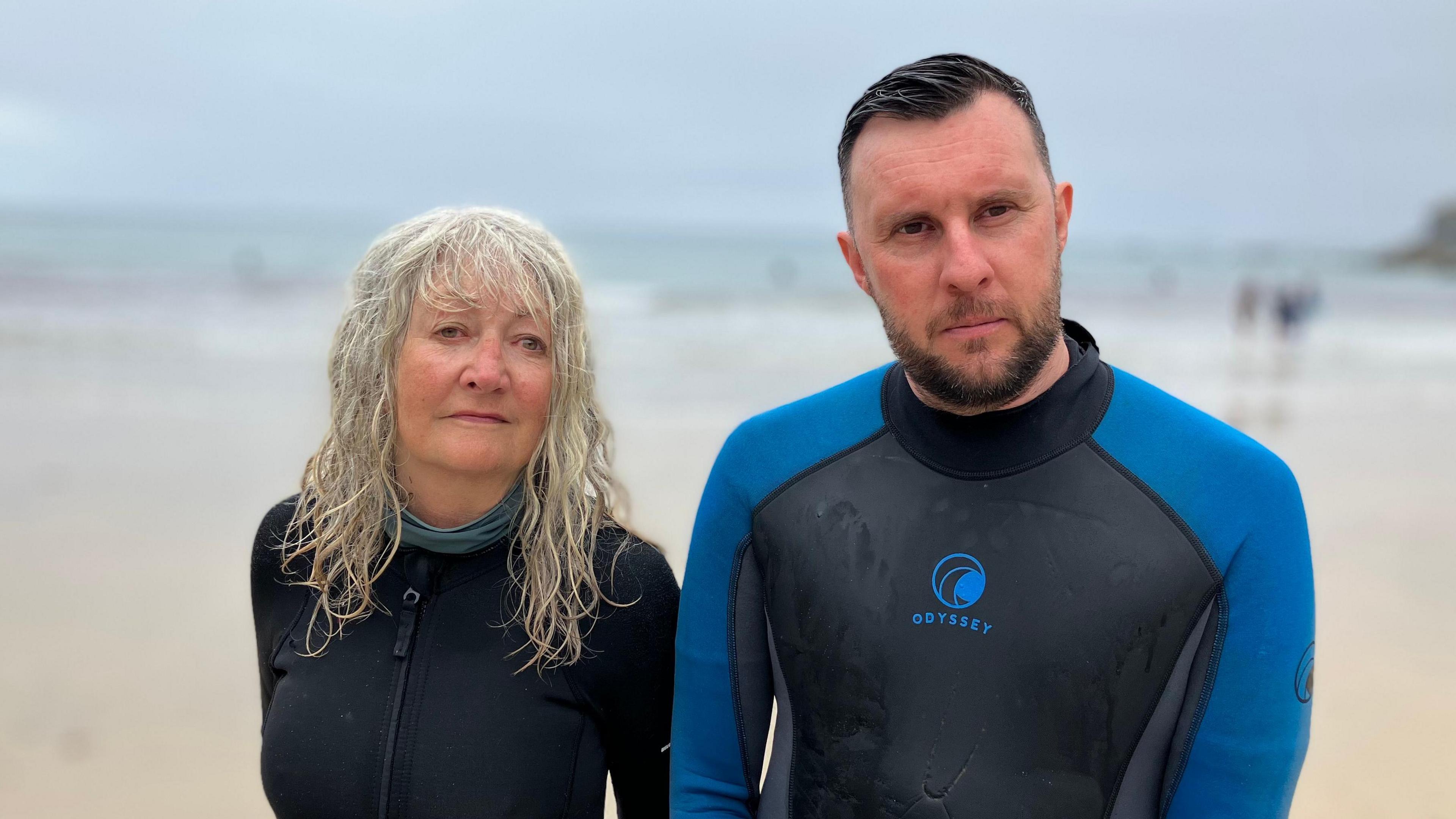
Members of the St Agnes Water Users Group are calling for real-time testing of bathing waters to help swimmers decide when to go into the water
- Published
Swimmers and clean water campaigners are calling for "real-time" testing to show immediate pollution levels at designated bathing water sites.
Currently tests are carried out at beaches and rivers by the Environment Agency (EA) and it can take several days for the results to be published.
Marianne Daysh, of the St Agnes Water Users Group in Cornwall, said: "You could potentially be swimming around in sewage, so real-time testing would really help."
The EA said the current system of regular testing during the bathing water season was "consistent and scientific" and designed to "build a detailed, accurate long-term profile of a site".
On Monday, a long-awaited review into England and Wales' troubled water sector was released, with Sir Jon Cunliffe's Water Commission recommending the scrapping of water regulator Ofwat.
On Sunday, Environment Secretary Steve Reed pledged the number of times sewage was discharged by water companies would be halved by 2030.
Ms Daysh, who swims in the sea year-round, said: "I've had eye infections and stomach upsets because of pollution.
"Instant testing would make things much simpler and much safer."
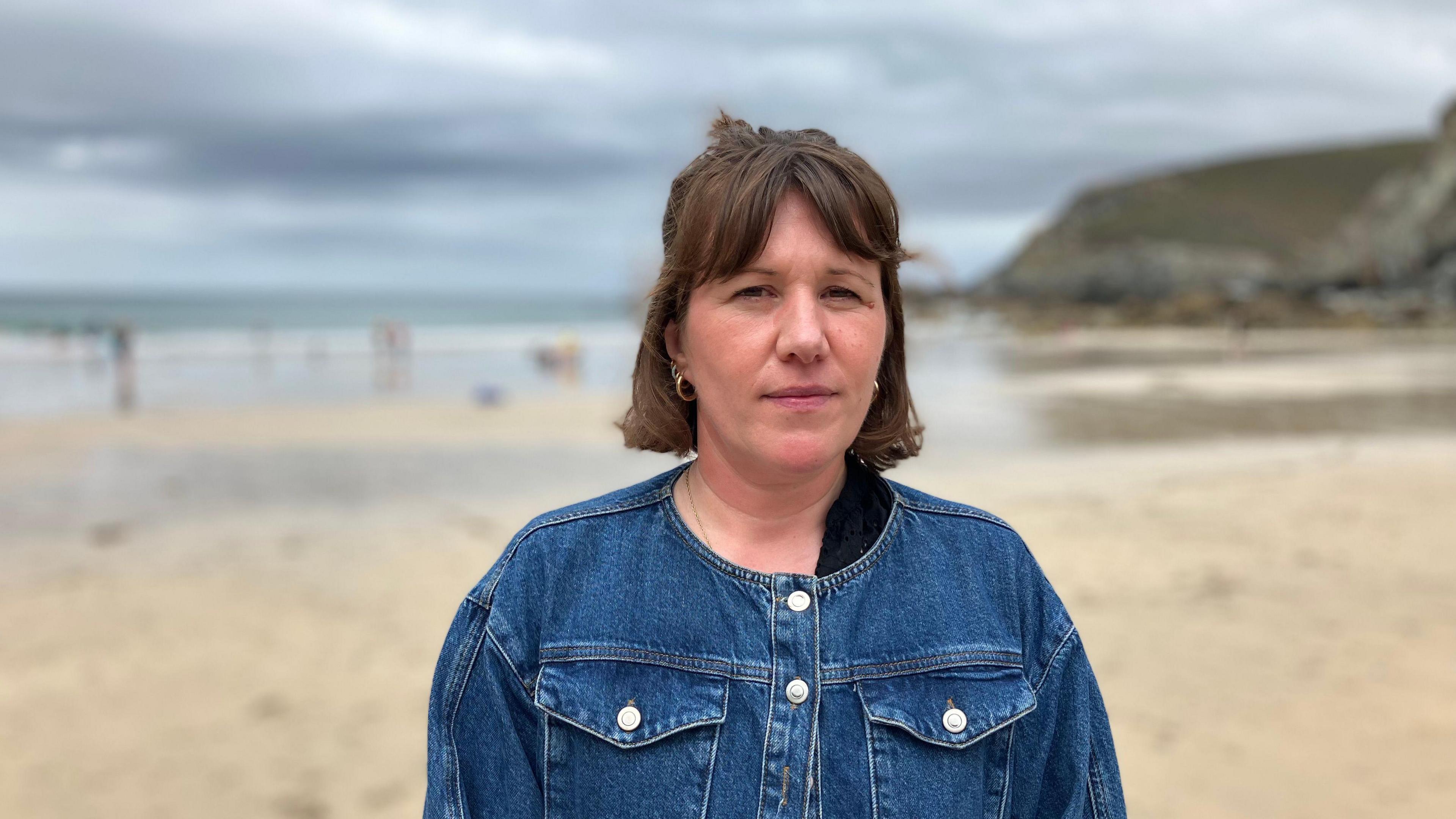
Kirsty Davies from Surfers Against Sewage said the current system is not good enough
The calls for real-time testing are also being supported by the campaign group Surfers Against Sewage (SAS).
Its Safer Seas Service, external mobile app provides information on when water quality could have been impacted by sewage spills, but, without specific detail on pollution levels, in a similar way to South West Water's WaterFit Live, external.
Kirsty Davies, from SAS, said: "People get sick using our waters and it's not good enough.
"The legislation currently is not in a good state.
"People deserve to enter the water knowing what they are swimming, surfing or paddling in."
At the moment, designated bathing waters are sampled regularly by the EA between 1 May and 30 September.
Samples are taken by hand and sent to a lab to be tested for two types of bacteria: ecoli and intestinal enterococci.
It can take several days for the results to be posted on the EA's Swimfo website, external.
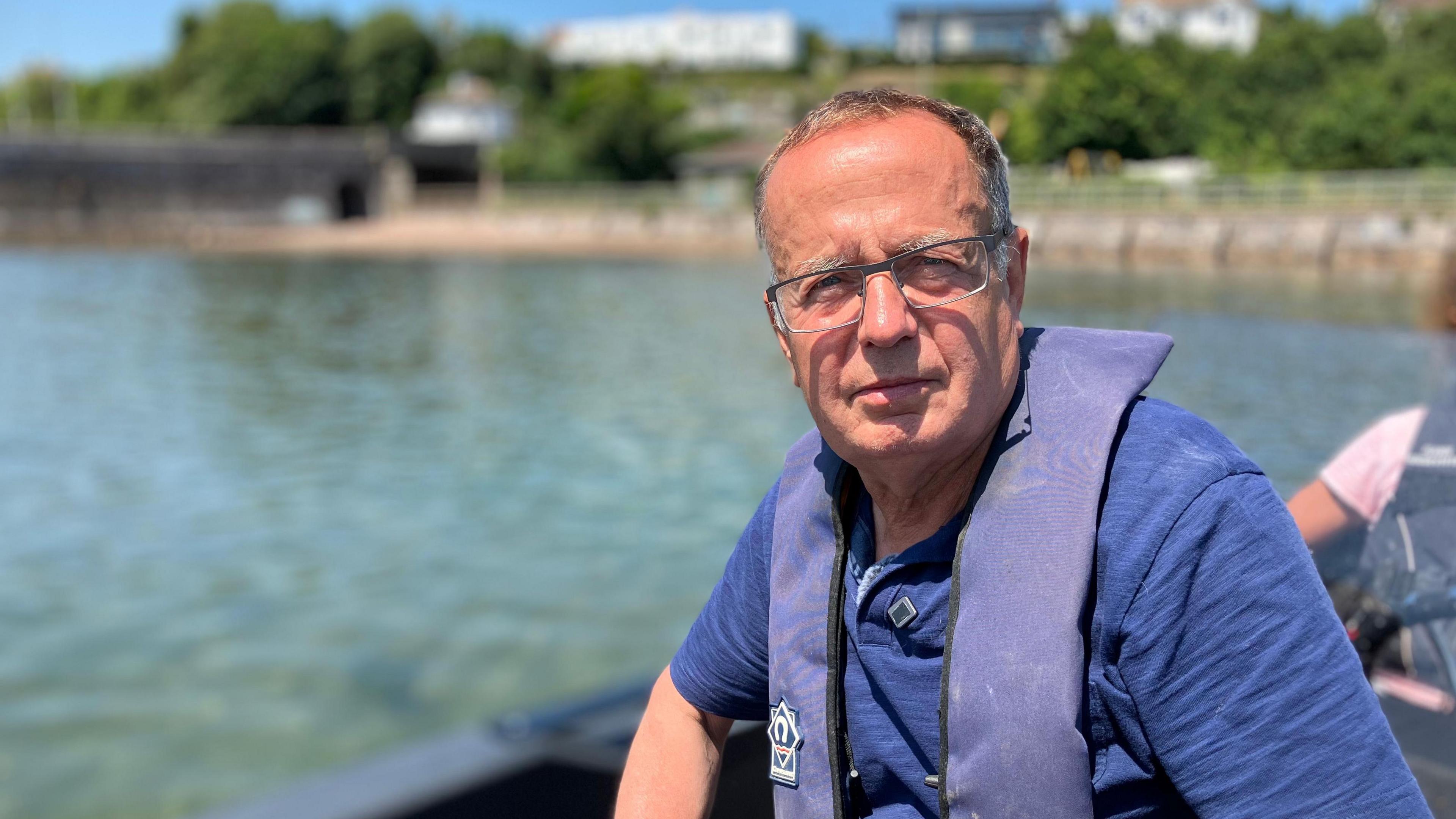
"We want people to be able to enjoy the water in the knowledge that they can be safe", Stuart Reynolds of Friends of the River Teign said
A growing number of community groups are also carrying out their own tests at sites popular with swimmers and other water users, including on the River Teign in Devon.
"People are worried about sewage in the river," Stuart Reynolds, from the Friends of the River Teign (Fort) group, said.
The group has been using a real-time device that can indicate levels of pollution.
"Most of the time the river is clean, but people need to know when it's not.
"We're looking at ways that will hopefully provide us with that information, where people could pick up on their phone, straight away," he added.
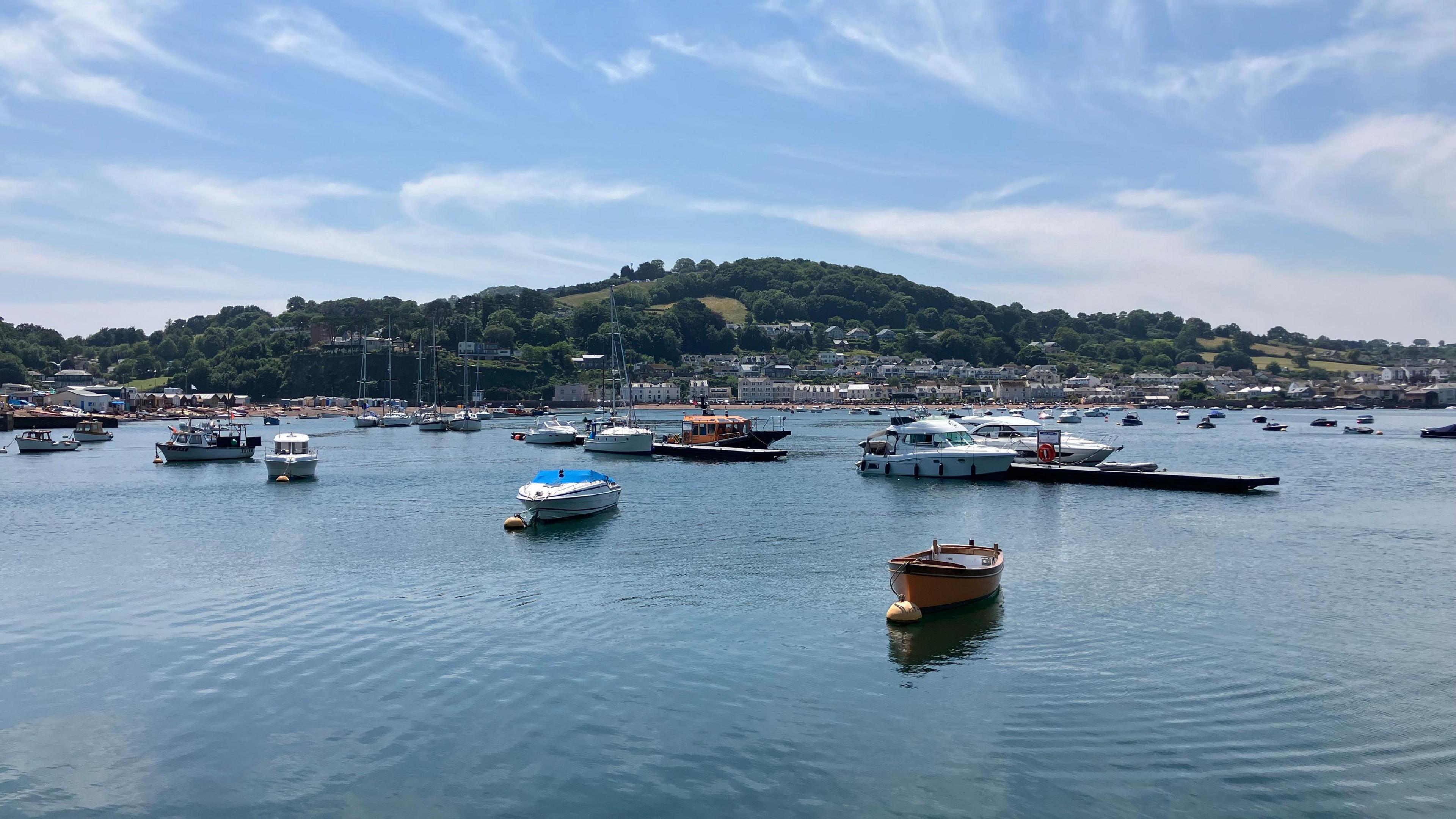
The Friends of the River Teign group has been testing pollution levels using a real-time device
The group said it hoped the test results would lead to measures being taken to improve water quality in the river, which could be impacted by factors including agricultural run-off.
Carolyn Sargentson, from Fort, said: "This is more complicated than it seems. It's not just sewage spills, although that is a huge problem.
"There are a lot of diverse and complex reasons why the water isn't always good enough to swim.
"We feel that, if we get our voices heard, we might be able to do something good for the water and the people who use it."
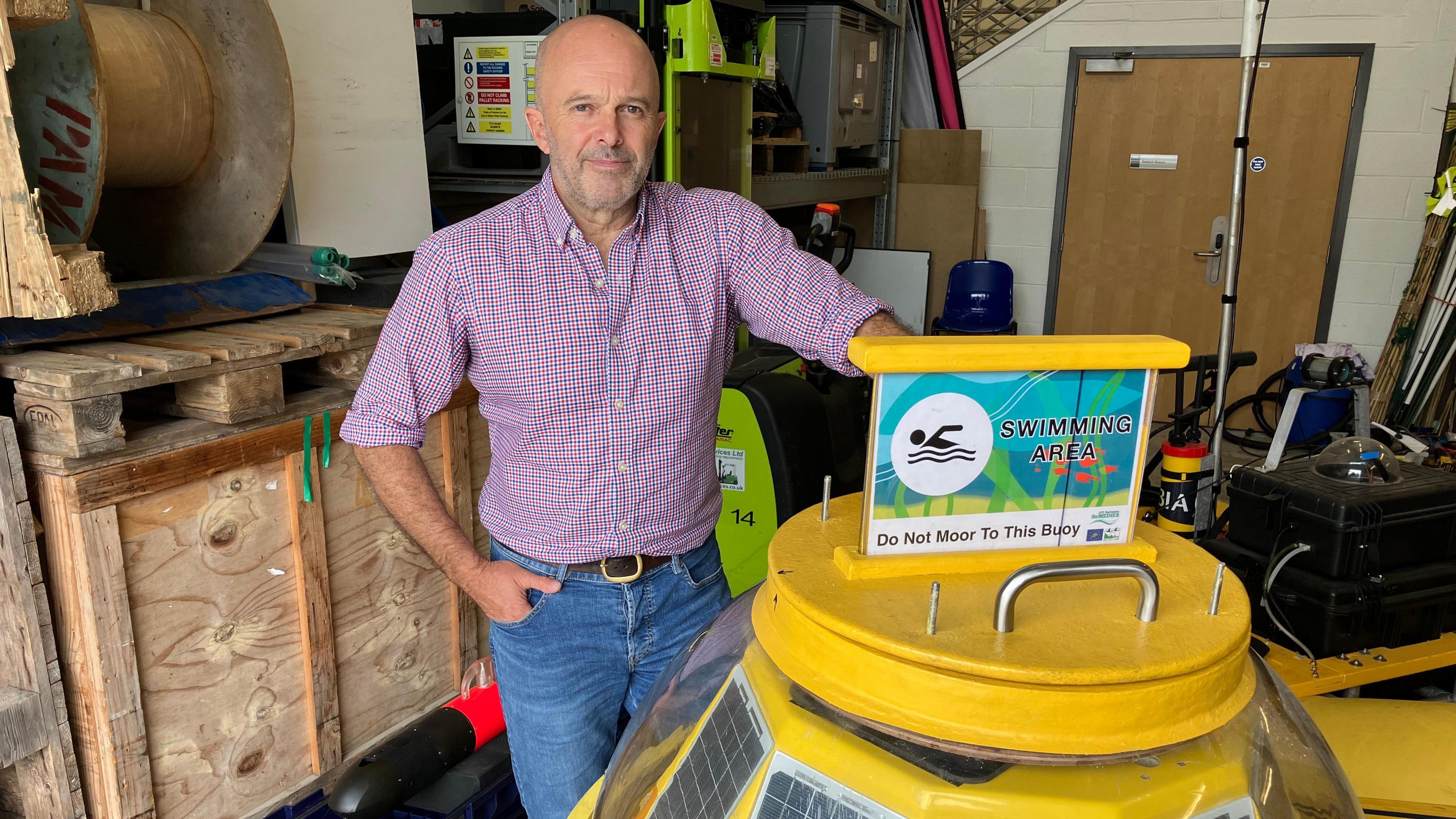
Dr Kieron Fraser is developing an autonomous water quality testing system in a buoy that will be placed in Cawsand Bay as part of a trial
The calls come as scientists at the University of Plymouth have developed an autonomous water quality testing system on a buoy that could be placed in rivers or the sea to take and analyse water samples "as frequently as every 15 minutes".
Dr Kieron Fraser, associate professor in marine conservation at the university, said: "We are developing this kit as there is a demand for a more accurate testing of our bathing waters."
The project, a collaboration between the University of Plymouth and the university's spinout company Molendotech Ltd, is funded by a £330,000 grant from Innovate UK.
Last year, Wessex Water installed real-time monitors at swimming spots as part of a trial, backed by funding from the water regulator Ofwat.
South West Water (SWW) said it was "absolutely committed to improving water quality".
The company added: "97.5% of bathing waters across our region passed Defra's strict standards in 2024 – with more than 96% rated good or excellent."
It also said it had reduced storm overflow spills at 15 out of 20 of the highest-spilling sites across Cornwall and Devon over the last 11 months.
"We're delivering one of the biggest environmental investment programmes in the country – with £850m being invested between 2020 and 2025, and a further £2.8bn proposed from 2025 to 2030 to accelerate environmental improvements."
The water regulator Ofwat has proposed £24m enforcement action against SWW over 'systemic' failures in the way the company managed its network.
'Long-term patterns'
The EA said its testing system was not designed to "say what the water quality at bathing waters is on any given day".
"Its job is to build a detailed, accurate long-term profile of a site to inform the public's decision of where to visit," it said.
The "consistent and scientific" sampling process system provided an overall classification for each location "based on long-term patterns", a spokesperson added.
The EA said it "welcomed the role citizen science monitoring can play" and was working with Defra to understand how new measures, such as removing the fixed monitoring season which runs from May to end of September, would be delivered and funded.
A Defra spokesperson said bathing water cleanliness was "paramount" and it was "updating outdated bathing water regulations, including removing fixed bathing season dates, so that more people have the opportunity to experience the benefits of our beautiful waters".
Follow BBC Devon on X, external, Facebook, external and Instagram, external. Send your story ideas to spotlight@bbc.co.uk, external.
Related topics
- Published7 May 2024
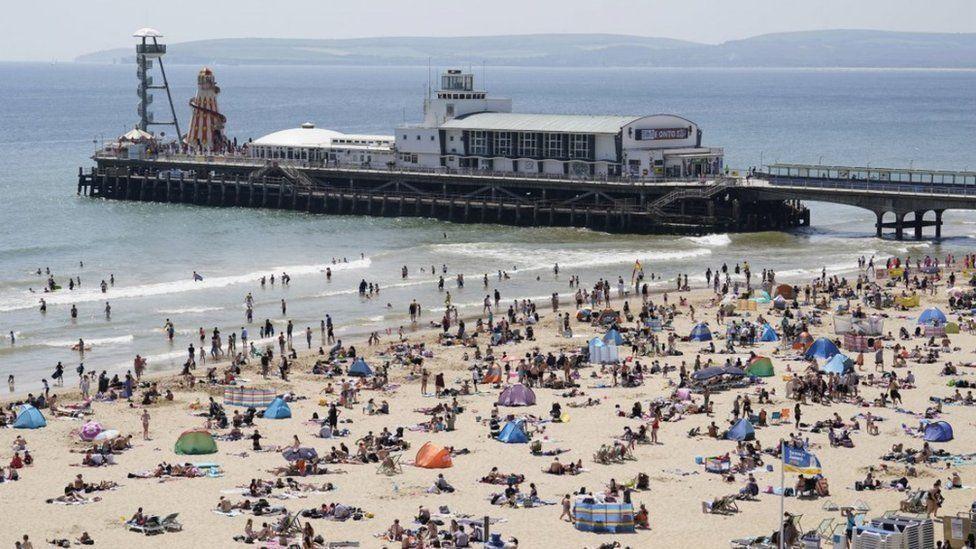
- Published2 June 2024
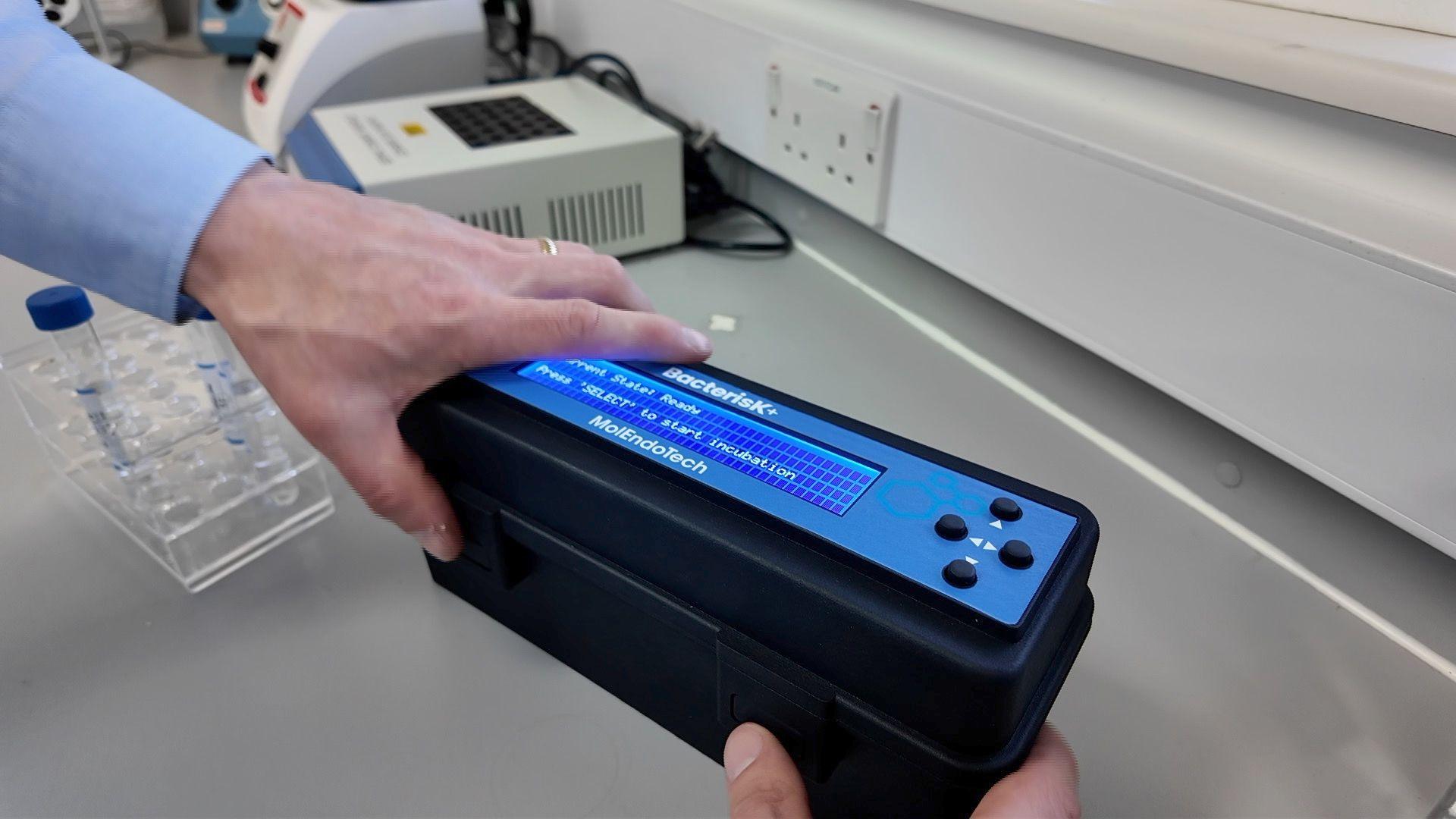
- Published15 May
